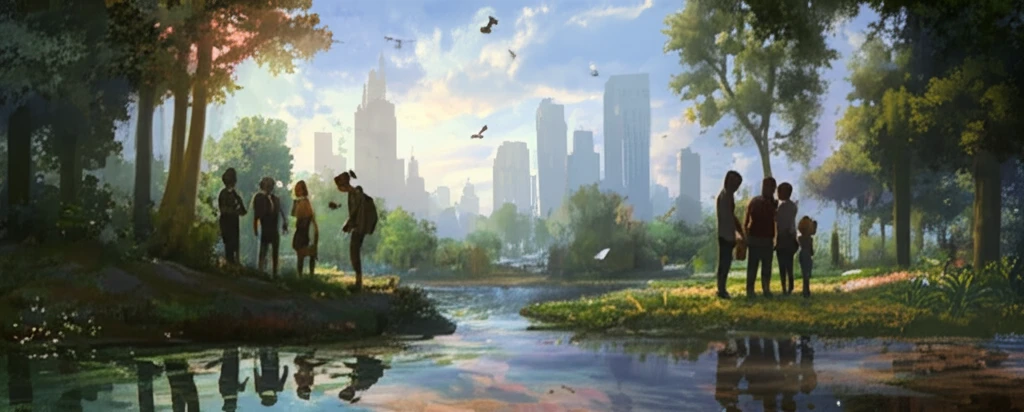
Urban Oases Under Threat: How Neglecting City Ecosystems Hurts the Most Vulnerable
"A deep dive into how urban development impacts ecosystem services and the well-being of the urban poor in cities like Bangalore."
Cities are hubs of human activity, but they also rely on ecosystems to function. These ecosystems, often taken for granted, provide essential services such as cooling, air purification, and recreation. However, as cities grow, these natural spaces are increasingly under pressure. This is especially true in developing countries, where the urban poor depend heavily on these ecosystems for their livelihoods.
In many urban areas, the poor rely on urban commons which include any natural public spaces for essential resources like food, fuel, and water. The urban commons is crucial for cultural identity, tourism and overall physical and mental health. But urbanization is reducing access to these resources, leading to significant challenges for those who depend on them most.
This article examines the complex relationship between urban development, ecosystem services, and the well-being of the urban poor, using Bangalore, India, as a case study. It explores how changes in urban ecosystems affect the availability and use of essential resources and how these shifts impact the lives of vulnerable populations. This includes a look at how people are adapting to these changes and what these adaptations mean for their overall well-being.
Bangalore's Changing Lakes: A Story of Privatization, Pollution, and Potential Gentrification

Bangalore, once known as the Garden City, has experienced rapid urbanization in recent decades. This growth has had a profound impact on the city's lakes, which have historically been vital sources of water and livelihoods for the urban poor. Over time, these lakes have undergone significant changes, including privatization, pollution, and, more recently, restoration efforts that sometimes lead to gentrification.
- Privatization followed by Conversion: Lakes are increasingly being privatized and converted into commercial properties, reducing public access.
- Pollution followed by Degradation: Industrial and residential waste contaminates the water, making it unusable for drinking or household chores.
- Restoration followed by Gentrification: Efforts to restore lakes often lead to the development of parks and recreational areas, which can increase property values and displace low-income communities.
The Future of Urban Ecosystems: A Call for Inclusive Restoration
The study highlights the need for inclusive restoration efforts that consider the needs and perspectives of all stakeholders, particularly the urban poor. While restoration is essential for the long-term health of Bangalore's lakes, it is crucial to ensure that these efforts do not exacerbate existing inequalities. By including the voices of vulnerable communities in the planning and implementation of restoration projects, cities can create more equitable and sustainable urban environments.
